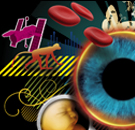
These questions formed part of the largest ever survey of authors and reviewers, which was presented by the organisation
Sense About Science at the British Science Festival yesterday. The Peer Review Survey 2009, compares results with similar questions from 2007. Tracey Brown (Sense About Science) discussed the report with science correspondent David Adam (
The Guardian) and Peter Hayward (
The Lancet Infectious Diseases) at the British Science Association, Surrey University.
Brown told the meeting that while detecting plagiarism and fraud might be a noble aim, it is not practical. The vast majority of authors and reviewers think that while peer review “should” detect plagiarism(81%) and fraud (79%), only a small amount (38% and 33%) thought of it capable of this.
Papers are not properly recognising previous work, Brown said. Most researchers surveyed (81%) thought peer review “should” ensure previous research is acknowledged, but only just of half think it currently does (54%), or is even capable of doing this (57%). This reflects, she said, current discussions within the research community over the a need for new studies to be properly set within the context of existing evidence. Currently
The Lancet is the only major medical journal to require reports of new research to be preceded by, and to conclude with, reference to systematic reviews of other relevant evidence.